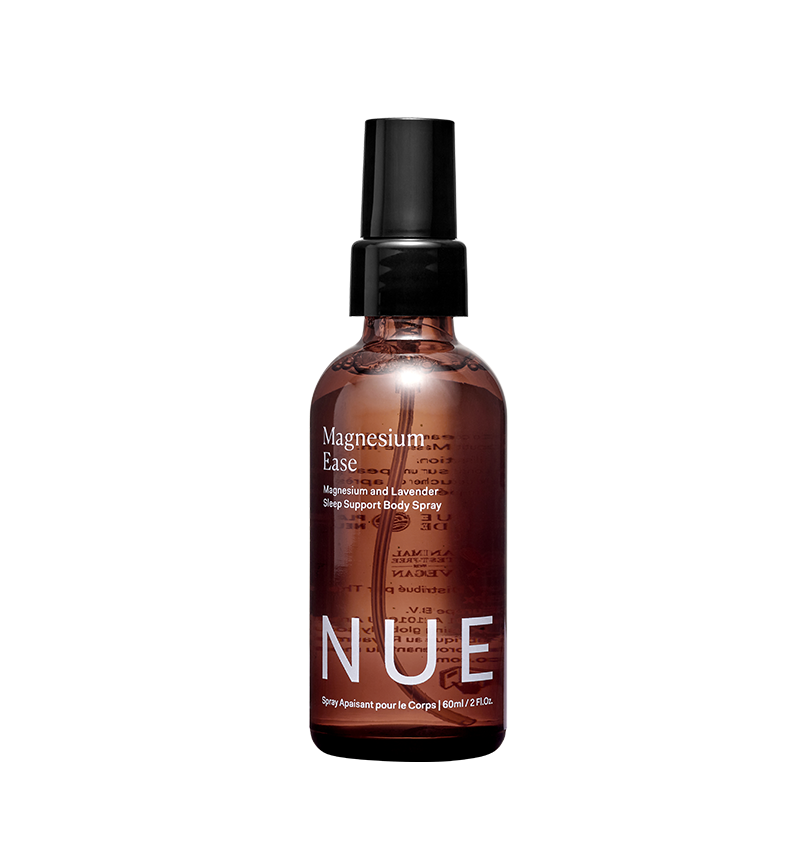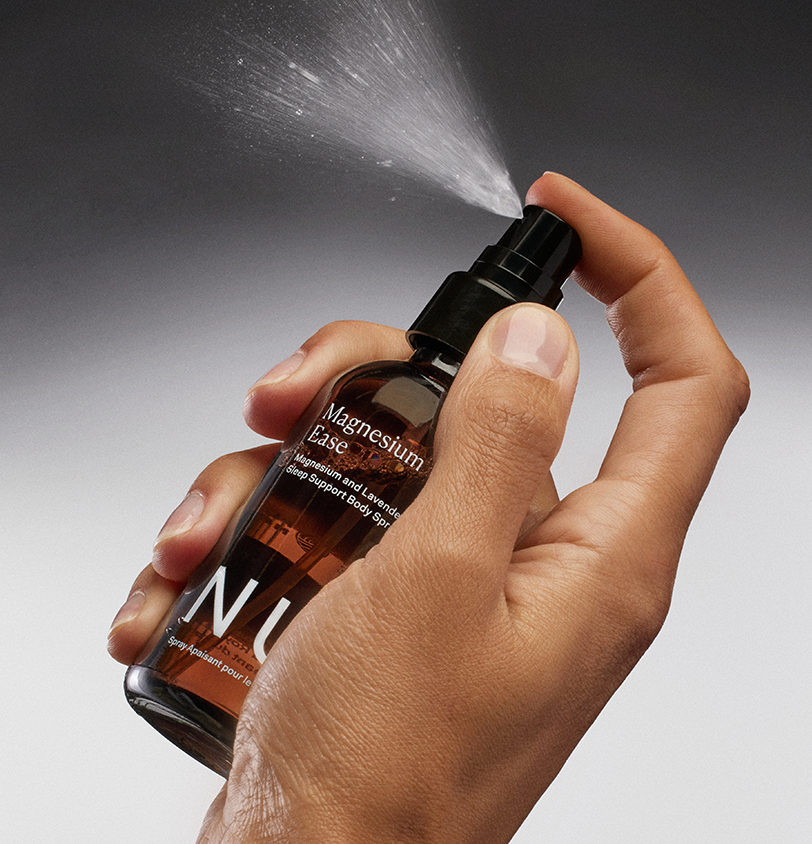Why Are My Shoulders Tense?
Scroll for the 4 reasons you’ve never thought of, and how to solve them.


Did you know? Surveys show that shoulder pain affects around a quarter of the population. So if you’ve ever asked yourself “why are my shoulders always tense and raised?”, know you’re not alone. But the reasons why might not be what you think.
4 Reasons Why You Have Tense Shoulders
1. You’re deficient in magnesium
Not just a symbol on the periodic table, magnesium plays a fundamental role in muscle contraction, skeletal strength and energy production, as well as nerve and heart function. When exercising or moving the body, this multitasking mineral relaxes your muscles and controls their contractions by lessening the build-up of tension-causing lactic acid. This helps your muscles get the oxygen they need to function.
Another cause of tense shoulders is calcifying, which happens when muscles harden due to excess calcium. Magnesium encourages the body to absorb calcium, preventing excess build-up that causes muscles to over-contract, spasm and twitch.
Try this: MAGNESIUM EASE
Transdermal magnesium (magnesium absorbed through the skin) is clinically proven to be a more effective delivery system compared to oral supplements. It enters the body quickly through the skin via hair follicles, sweat ducts and skin cells, by bypassing the digestive system, where many nutrients are poorly absorbed. For shoulders always tense and raised, spray our lavender-scented MAGNESIUM EASE directly onto the back of your neck and upper back as needed for tension-soothing relief.
2. You’re feeling stressed
The neck and shoulders are common areas holding tension and anxiety. To protect us from what our body perceives as a threat (whether physical or emotional) our muscles’ reflex reaction is to tense up. It’s because our body is hard-wired with a “fight or flight” response to stressful situations. With shoulders always tense and raised up to our ears, it’s our body’s way of safeguarding against potential injury or pain. But it often has the opposite effect, causing tense muscles and knots around the shoulders, neck and upper back areas.
Try this: exercise regularly
High levels of cortisol (the stress hormone) in the body can cause issues with muscle tension and tightness, as well as impair immunity, libido, digestion and focus. Exercise helps reduce cortisol levels and stress by promoting the release of endorphins, which act as natural mood lifters. Physical activity also stimulates the production of neurotransmitters like serotonin, which can enhance mood and overall well-being.
3. You’re dehydrated
Our muscles are 70-80% water. When your body loses water through perspiration, or you're not adequately hydrating, your risk of inflammation is higher as you don't have enough water in your blood for optimum circulation. Plus, you’re also losing essential salts and minerals in the body, which we need to keep muscles hydrated. When muscles are dehydrated, they become tense and tight, affecting movement and often leading to tense shoulders and uncomfortable cramps.
Try this: electrolyte drinks
Electrolytes are minerals essential to human health, like potassium, sodium, chloride and magnesium. They are responsible for directing water and nutrients to where they are needed most in the body, as well as regulating nerve and muscle function. Electrolyte drinks are excellent for replenishing salts and minerals in the body, assuring optimal fluid balance within our cells and keeping muscles adequately hydrated. Try sipping coconut water and watermelon juice alongside your usual 2 litres of water to keep the body topped up - they’re both very high in natural electrolytes.
4. You’re not moving enough
The trapezius muscle starts at the base of the neck, extends across the shoulders and down to the middle of your back, in a loose diamond shape. It carries more tension than any other area in the body, often caused by bad posture or sitting in the same position for too long. With many of us sitting hunched over a desk for 8 hours a day, the same muscles are being contracted for long periods of time. This causes muscle knots (aka myofascial trigger points) where the muscle fibres are in a constant state of tension. Another contributor to tense shoulders is poor posture, which causes a persistent strain on muscles and creates discomfort when you change position to sleep or stand.
Try this: desk-side yoga
Shoulders always tense and raised at your desk? Take regular breaks to stretch it out. A great stretch for easing tightness in tense shoulders is the yoga pose “eagle arms”. To try it, extend both arms out wide, then cross your left arm under the right in front of you. Bend the arms in an upright position in front of your face, so the backs of your forearms are against each other, and wrap the palms together as best you can, depending on mobility (don’t force any movements here, listen to your body). Lift the elbows up and tilt your chin downwards, feeling the stretch across your scapula (the shoulder blades). Hold for around 30 seconds before repeating on the other side.

